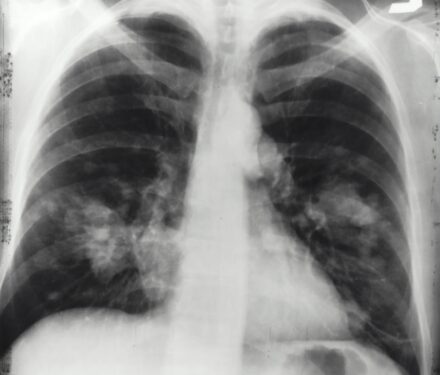Researchers identify key driver of devastating muscle wasting disease affecting cancer patients
By Hudson Institute communications
Lung cancer is the leading cause of cancer death worldwide, and is frequently associated with cachexia. Cachexia is a devastating syndrome of weight and muscle wasting, affecting as many as 80 per cent of advanced cancer patients.

Researchers at the Hudson Institute of Medical Research, led by Professor Brendan Jenkins in the Centre for Innate Immunity and Infectious Diseases, have discovered a link that could herald both early detection and better treatment.
The scientists, including first author Dr Alastair Miller, an adult respiratory physician at Monash Health, believe a cytokine called Interleukin 6 (IL-6) is responsible for driving cachexia in lung cancer patients through a signalling pathway called trans-signalling.
Dr Saleela Ruwanpura, a Post-doctoral Fellow in Hudson’s Centre for Innate Immunity and Infectious Diseases, said the link is completely new, and raises hope, both for early detection and targeting the disease, which is associated with 60 per cent of all advanced lung cancer deaths.
“We have identified, in our preclinical findings, an alternative pathway that IL-6 uses to promote muscle wasting called trans-signalling,” Dr Ruwanpura said.
Earlier this year, research by Professor Brendan Jenkin’s Cancer and Immune Signalling Research Group suggested that IL-6 uses trans-signalling to drive both lung cancer and emphysema, and a unique signature used by IL-6 is present in high volumes in the blood of these patients.
This most recent paper by Professor Jenkin’s group suggests that IL-6 drives cancer cachexia using much the same signalling process.
“We are looking to develop a blood test for lung cancer and emphysema that picks up the high levels of IL-6 in the blood of these patients. This test could also be applied to lung cancer-related cachexia,” Professor Jenkin said.
The team also identified the use of an antibody which blocks the IL-6 trans-signalling process and ameliorates cachexia. Professor Jenkins says this drug may have clinical potential in lung cancer cachexia.
Dr Ruwanpura said there is a pressing and unmet clinical need to identify the molecular drivers of cachexia so that these can be targeted to alleviate debilitating cachexia symptoms.
“Given the prevalence and poor prognosis of advanced lung cancer patients, which correlate with various cachexia-associated effects, our project has great potential to benefit the health of cancer suffers worldwide,” Dr Ruwanpura said.
Contact us
Hudson Institute communications
t: +61 3 8572 2697
e: communications@hudson.org.au
About Hudson Institute
Hudson Institute’ s research programs deliver in three areas of medical need – inflammation, cancer, women’s and newborn health. More
Hudson News
Get the inside view on discoveries and patient stories
“Thank you Hudson Institute researchers. Your work brings such hope to all women with ovarian cancer knowing that potentially women in the future won't have to go through what we have!”







